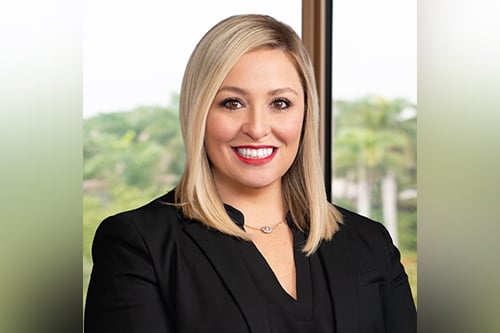Attorney weighs in on why compliance issues may arise this year and how mortgage pros can keep their loans clean

With one high-volume year in the books, mortgage pros are staring down a very busy 2021. That means a lot of calls, a lot of meetings, and a lot of paperwork as you try to secure loans for clients in an increasingly competitive purchase market. That volume and rush, however, can have some compliance consequences down the road.
To understand some of the legal pitfalls mortgage pros could find themselves in this year, MPA spoke with Lauren Einhorn (pictured), partner at Kelley Kronenberg Attorneys at Law. She explained why originators can often make compliance mistakes as they’re securing loans. She also laid out how those mistakes and the structural issues they face during this pandemic can come back to hurt an originator’s practice.
“Rushed work often results in mistakes,” Einhorn said. “Originators are so overwhelmed with loans due to the low interest rates and inflated housing prices that everything is backed up. In some cases, final loan packages aren’t being turned over until the day of closing. There are also additional compliance reviews due to COVID that require underwriting to continuously check a borrower’s income throughout the process. These additional reviews slow down the process substantially and end up delaying the initial closing date a majority of the time. The whole industry is feeling the effects of the timeline changes, from consumer to closing agent and everyone in between.”
Read more: How focused should mortgage pros be on refis this year?
That time pressure and the increasingly last-minute nature of closings, particularly with refis, can cause significant issues should the loan go into default. Einhorn explained that the last major foreclosure crisis saw a huge amount of litigation around rushed paperwork and simple errors. Currently, however, originators are following a stricter set of guidelines which, in Einhorn’s view, mean that any issues that do arise will be more a result of fast-changing circumstances than securing fundamentally bad loans. The trouble is, we still live in uncertain times.
These changing circumstances and defaults, in Einhorn’s view, can come back to bite originators. As we start seeing COVID-related defaults and delinquencies increase, she expects the CFPB and federal regulators to start playing a more active role, meaning originators are going to have to spend more time and money on compliance and litigation.
Read more: In 2021, you can't afford not to know non-QM
Einhorn stresses that these “mistakes” are more likely to result from stretched capacity than oversight or incompetence. She said that originators would do well to ensure they have enough staff to complete the loan process on standard timelines. COVID, however, makes the situation more complex as the fluidity and uncertainty of our current moment will make any long-term hiring decision somewhat fraught.
Einhorn isn’t making these points to push legal services on every transaction. She believes that many less-complex loans won’t require legal involvement. However, some more complex transactions like a major commercial refi will certainly need a legal eye. In addition, working with a closing agent who is also a qualified as an attorney can provide that extra layer of comfort and reassurance that this loan won’t result in future issues down the road.
Overall, Einhorn believes that clear expectations and awareness of the risks ought to guide any originator away from legal and compliance pitfalls this year.
“Expectations and timelines should be set up early in the process to avoid any surprises,” Einhorn said. “This benefits the lender to ensure they are at 100% compliance, customer service is better, and consumers feel more comfortable. This also brings a benefit to the closing agents to make sure they are properly prepared to close the loans.”



